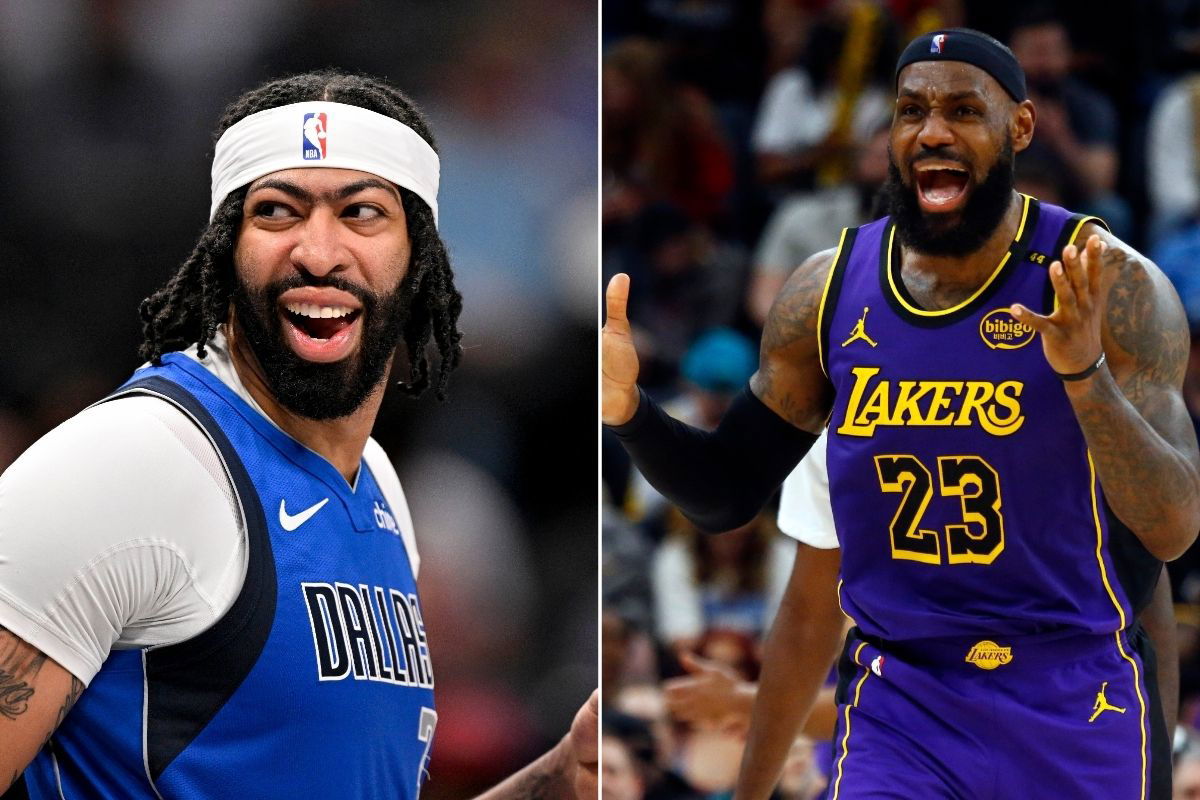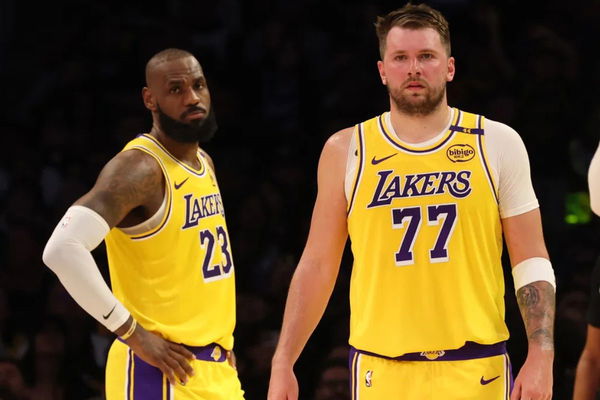



It wasn’t a shot clock violation or a blown assignment that defined the Lakers’ season-ending. It was the pause. A pause from LeBron James—not on the court, but in front of microphones. One that said more than any box score ever could. Because this wasn’t just about Game 5. It was about everything that came before it—and what’s coming next.
Watch What’s Trending Now!
There was no speech. No sweeping declaration of legacy or loyalty. Just a man who’d been here before, perhaps too many times, choosing to say nothing at all. And beneath that silence? A wound. Because for all the talk of roster upgrades, All-Star trades, and late-season momentum, something fundamental cracked. It wasn’t a tactical error. It was trust.
That crack began to show in December, but it fully split in April.
Throughout the postseason run, the Lakers leaned on small ball. But not by design. The shift began when Anthony Davis went down, and never really reversed. By the time LA faced Minnesota, the lack of rim protection wasn’t a schematic tweak, it was a structural flaw. Rudy Gobert ate them alive. Rui Hachimura was outmatched. Jaxson Hayes was barely used. And LeBron? Asked to absorb contact, battle in the paint, and keep the floor spaced—all at 40.
Then came the question. One reporter asked about playing centerless basketball, about the toll it took, about the roster being stretched thin.
“No comment,” LeBron replied. Then added, almost under his breath: “AD said what he needed to, and then he was gone the following week.” You could feel the air tighten. This wasn’t passive disappointment. It was controlled resentment. Since Anthony Davis was traded mid-season to Dallas for Luka Doncic, LeBron has shouldered a frontcourt load he didn’t sign up for—not at this age, and not at this point in his career.
The Timberwolves exploited that mercilessly. Gobert had 27 and 24 in the closeout. And for LeBron, the silence wasn’t about the trade—it was about the consequence, which brings us to the sideline. JJ Redick was brought in for more than vibes. He was supposed to be the thinker who blended analytics with intuition, who could teach movement, spacing, and efficiency to a group that had known mostly chaos. His approach was grounded: smart shot selection, off-ball timing, professional habits.
Redick preached preparation before possession. Use your legs, read the floor, take the corner three, or drive into contact—but always with intent. Superior conditioning. Unselfish cuts. Calculated chaos. And for stretches, it worked. The Lakers went 15–5 after the trade. Luka thrived. Reaves found space. The ball popped.
But once the postseason hit, cracks surfaced. No backup center meant no rim deterrence. No defensive stopper meant Anthony Edwards ran wild. And suddenly Redick’s system, which relies on all five players pulling weight, collapsed under the pressure of a roster that didn’t have five reliable options. LeBron recognized that. “It’s already hard being a rookie coach,” he said. “It’s a hell of a lot harder being a rookie coach for the Lakers.” But he added something else. Something telling.
“I don’t know what the roster will look like… I got a lot to think about myself. But JJ, he’s going to continue to grow. He had a hell of a rookie campaign… He held us accountable. He pushed us. That’s one thing for sure—you got a great, up-and-coming coach who’ll be great for many, many years.”
The roster may be in flux. But in LeBron’s eyes, Redick is the one immovable piece.
What’s Next: A Roster in Flux, A Legacy in Limbo
Now comes the hard part.
LeBron didn’t offer clarity postgame. When asked about retirement, he said, “I don’t have the answer to that right now. … I’ll talk with my family, my support group, and then I’ll make that decision.” He’s been here before. His past quotes echo loudly now—if there ever comes a day where he doesn’t want to show up five hours early, doesn’t want to study scout sheets or feel motivated to train—“that’s when I’ll know it’s a wrap.”
The problem is that day hasn’t come yet. And so the Lakers are left in limbo—caught between timelines, juggling future assets and a 40-year-old with one foot still in elite production and the other hovering over the exit. The Lakers chose the long game at the deadline. They passed on acquiring a true center to maintain cap flexibility for 2026. They envisioned Luka, LeBron, and Bronny as a new era—possibly even Bryce in the distance. But that horizon is foggy.
And the more immediate question? What happens with Austin Reaves.

Imago
Feb 19, 2025; Los Angeles, California, USA; Los Angeles Lakers forward LeBron James (23) and guard Luka Doncic (77) during the second quarter against the Charlotte Hornets at Crypto.com Arena. Mandatory Credit: Jason Parkhurst-Imagn Images
Reaves, just 26, is the Lakers’ most tradeable piece—young, cheap, and creative. He nearly went in the Luka deal. He didn’t. That saved LA’s spacing but cost them rim protection. And now? If LA wants a real big—Gobert, Claxton, Kessler—they’ll have to consider moving Reaves. Because Jaxson Hayes didn’t play. Because Mark Williams failed his physical. Because Gobert had 27 and 24 while no Laker could slow him down. There’s Dalton Knecht—promising but benched. Rui, DFS, Vincent? Role players, not needle movers. So Pelinka must decide: push all chips in now—or wait for the next disgruntled star.
But waiting has risks. If LeBron opts in, his $52 million number limits movement. If he opts out, he could take less to create space—but will he? The Lakers might ask him to take the Harden path—let them make moves, then offer “what’s left.” But if they miss, like they did with Klay last summer, it’s wasted leverage. Then there’s Luka. Just 26. The new franchise tentpole. If LA wants to attract a running mate, they must remain flexible. Could Jaren Jackson Jr. be pried loose? Could the Lakers lure a frustrated star in 2026 or 2027 the way they once did Shaq, Kareem, or AD?
It’s a bet on branding. On legacy. On patience. Redick, for his part, is now central to it all. Year one proved he can teach, lead, and grow. Year two must prove he can adjust, scheme, and win. Because the Lakers don’t just need another piece. They need identity. They need leverage. They need to stop asking LeBron to be the system, the solution, and the savior. They need a path. And a plan. For now, they only have questions. And the sound of LeBron’s silence.

